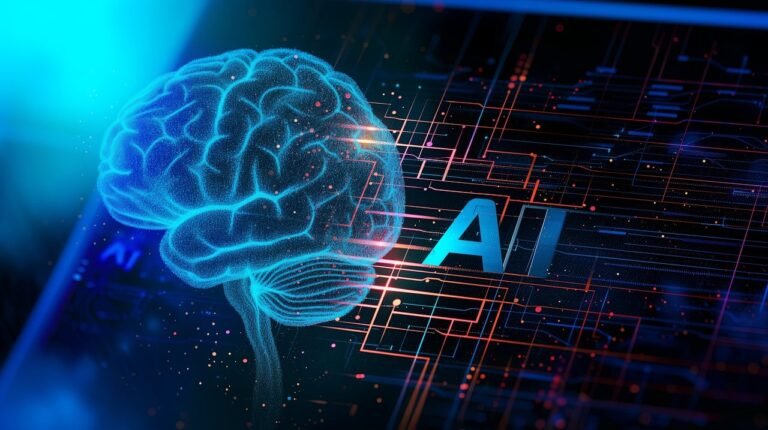
Introduction
Artificial Intelligence (AI) is no longer just a concept from science fiction; it is a rapidly evolving technology that is reshaping industries and transforming our daily lives. From virtual assistants and self-driving cars to advanced data analytics and predictive algorithms, AI is making a significant impact across various sectors. This blog post explores what AI is, its applications, the challenges it faces, and its potential future developments.
What is Artificial Intelligence?
Artificial Intelligence refers to the simulation of human intelligence in machines programmed to think and learn like humans. These systems can perform tasks such as recognizing speech, making decisions, solving problems, and understanding natural language. AI is broadly categorized into two types:
- Narrow AI: Also known as Weak AI, this type refers to systems designed to perform specific tasks, such as virtual assistants (like Siri or Alexa) or recommendation algorithms used by streaming services.
- General AI: Also known as Strong AI, this is a theoretical form of AI that possesses the ability to understand, learn, and apply intelligence in a way that is indistinguishable from human intelligence. General AI is still in the realm of research and has not yet been achieved.
Applications of Artificial Intelligence
AI’s applications are diverse and impactful, spanning various fields, including:
- Healthcare: AI is revolutionizing healthcare through predictive analytics, personalized medicine, and diagnostics. For example, AI algorithms can analyze medical images to detect diseases, assisting doctors in making more accurate diagnoses.
- Finance: In the finance sector, AI is used for fraud detection, algorithmic trading, and risk management. AI systems can analyze vast amounts of data to identify patterns and make informed investment decisions.
- Transportation: Self-driving cars are one of the most prominent examples of AI in transportation. These vehicles use AI to navigate, recognize obstacles, and make real-time decisions, potentially improving road safety and efficiency.
- Customer Service: AI-powered chatbots and virtual assistants enhance customer service by providing instant responses to inquiries, streamlining support processes, and personalizing customer interactions.
- Entertainment: Streaming platforms like Netflix and Spotify use AI to recommend content based on user preferences, enhancing the user experience and increasing engagement.
Challenges Facing Artificial Intelligence
While AI offers numerous benefits, it also presents several challenges that must be addressed:
- Ethical Concerns: The use of AI raises ethical questions regarding privacy, surveillance, and bias. For example, AI algorithms trained on biased data can perpetuate discrimination, leading to unfair outcomes in hiring, lending, and law enforcement.
- Job Displacement: As AI systems automate various tasks, there is concern about job displacement and the future of work. While AI creates new opportunities, it also necessitates reskilling and upskilling for those affected by automation.
- Security Risks: AI systems can be vulnerable to cyberattacks and misuse. Ensuring the security of AI applications is critical, especially in sensitive areas like healthcare and finance.
- Transparency and Accountability: Many AI algorithms operate as “black boxes,” making it challenging to understand how they arrive at decisions. Ensuring transparency and accountability in AI systems is essential for building trust and ensuring responsible use.
The Future of Artificial Intelligence
The future of AI holds exciting possibilities and potential challenges. Some trends to watch for include:
- Advancements in General AI: While still a distant goal, research into General AI continues. Achieving this level of intelligence could lead to groundbreaking advancements in various fields but also requires careful consideration of ethical implications.
- AI and Human Collaboration: The future will likely see more collaboration between humans and AI systems. Rather than replacing humans, AI can augment human capabilities, enabling better decision-making and increased productivity.
- Regulation and Governance: As AI continues to evolve, the need for effective regulation and governance will become increasingly important. Policymakers must address ethical concerns, ensure fairness, and protect citizens’ rights.
- Focus on Explainable AI: The development of explainable AI—systems that can provide insights into their decision-making processes—will be crucial for transparency, accountability, and user trust.